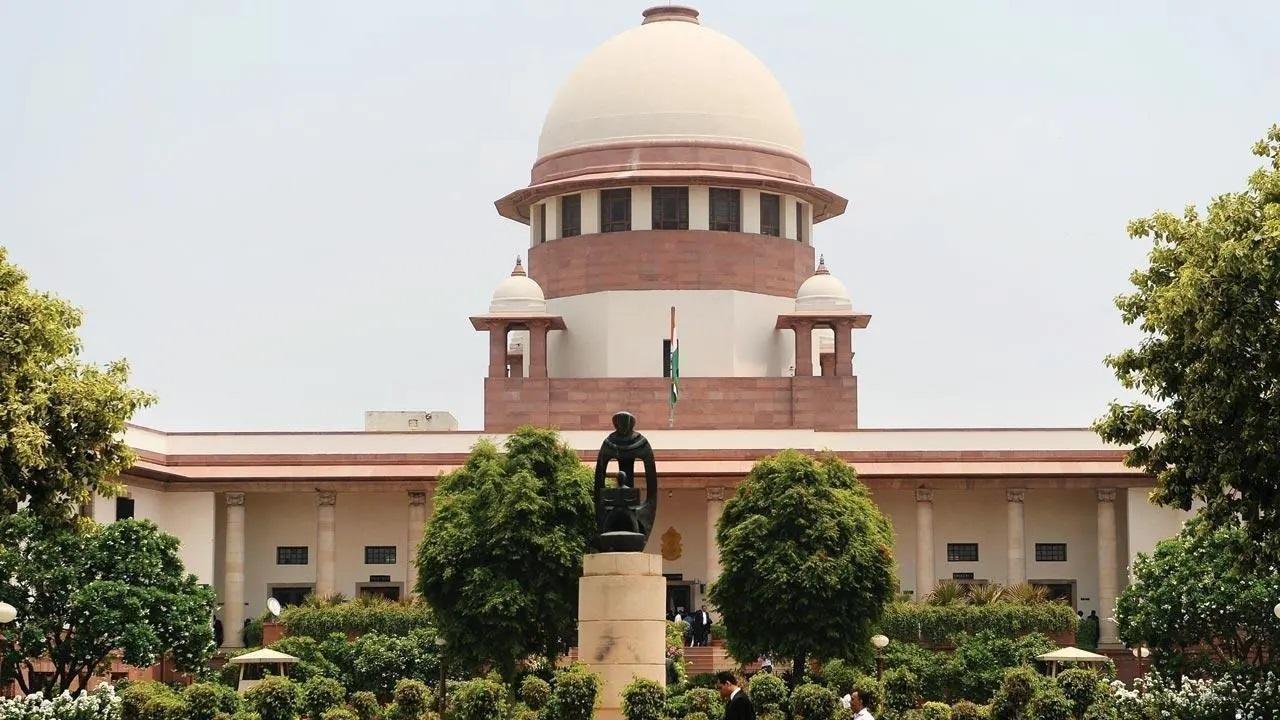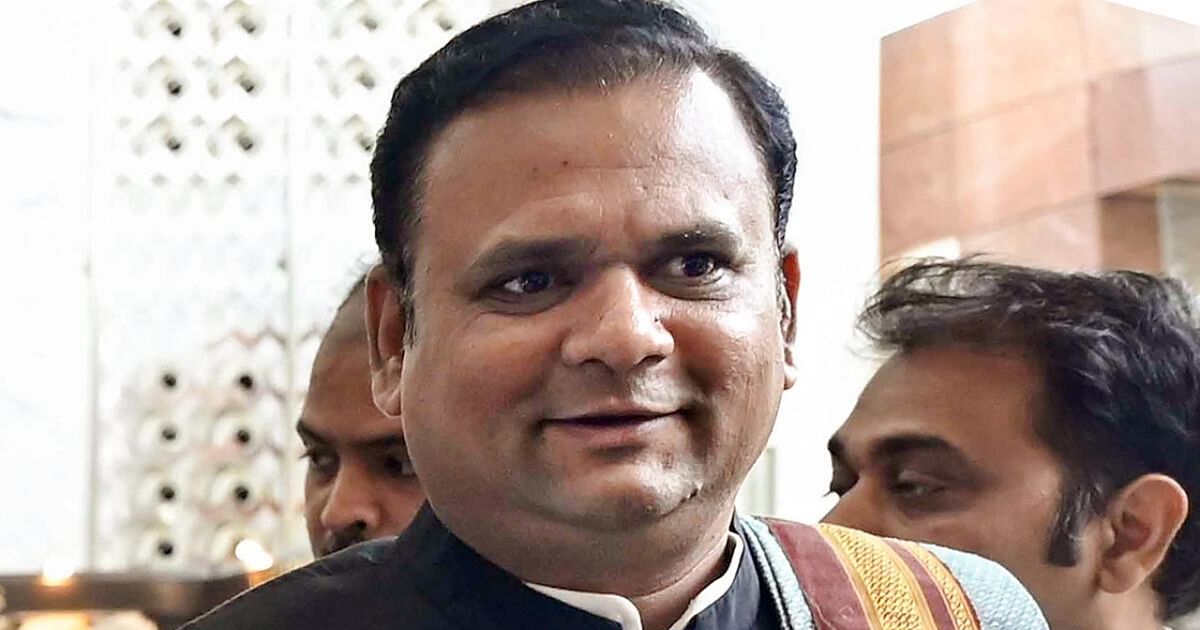MLAs disqualification row: Ahead of SC hearing, Rahul Narwekar heads to Delhi

MLAs disqualification row: Ahead of SC hearing, Rahul Narwekar heads to Delhi
Maharashtra assembly Speaker Rahul Narwekar embarked on a visit to New Delhi on Sunday, where he is slated to participate in several meetings, including one with Solicitor General Tushar Mehta. Notably, the Supreme Court, on October 17, granted Narwekar a final opportunity to present a realistic timeframe for deciding the cross-petitions filed by rival factions of the Shiv Sena, each seeking the disqualification of the other’s MLAs in the wake of a split within the party.
The apex court emphasized the need for expeditious adjudication of the disqualification petitions and scheduled a hearing on the matter for October 30. Ahead of his departure from Mumbai, Narwekar affirmed that his visit to the national capital entailed a pre-planned itinerary, with a series of meetings scheduled, including one with the Solicitor General.

Narwekar’s engagement with the Solicitor General in Delhi, along with his participation in other scheduled discussions, underlines the significance of addressing the legal intricacies associated with the cross-petitions within the Shiv Sena. The Supreme Court’s directive for prompt adjudication underscores the importance of timely and judicious resolution of disputes, particularly those that have implications for the political landscape and governance in the state of Maharashtra. By adhering to the court’s directive, the aim is to ensure a fair and transparent process that upholds the principles of democratic governance and accountability.
The Supreme Court is slated to hear pleas on Monday filed by the Uddhav Thackeray faction of the Shiv Sena and the Sharad Pawar bloc of the NCP, seeking a directive for Speaker Rahul Narwekar to expedite the decision on disqualification petitions concerning certain MLAs. When questioned about this development, Narwekar indicated that he would seek legal advice before making any decisions in this matter.

Regarding the issuance of notices to NCP MLAs in response to the disqualification petitions, Narwekar clarified that this action was part of the standard procedure, undertaken following a thorough examination of the submitted disqualification petitions. His remarks suggest a commitment to upholding due process and ensuring a fair and transparent evaluation of the disqualification petitions in accordance with established legal protocols and principles of procedural fairness.
Narwekar’s approach, which involves seeking legal counsel before taking any significant steps in the matter, reflects a commitment to ensuring that all actions taken as part of the adjudication process align with legal requirements and adhere to established norms of impartiality and transparency. By adhering to a thorough and consultative process, the aim is to ensure that all decisions made uphold the integrity of the legal framework and promote the principles of justice and procedural fairness in the handling of the disqualification petitions.
The Supreme Court, on October 17, under the leadership of Chief Justice DY Chandrachud, expressed dissatisfaction with the existing time schedule and indicated that the Solicitor General would personally engage with the speaker during the Dussehra break to establish a definitive framework for addressing the pending disqualification petitions. The court had previously reprimanded the speaker for the delay in resolving the pleas filed by the Uddhav Thackeray faction for the disqualification of Chief Minister Eknath Shinde and several MLAs aligned with him, emphasizing that the speaker cannot circumvent the directives of the highest court in the land.
Similar disqualification petitions had been filed by the Shinde bloc against legislators aligned with Thackeray. Earlier, on September 18, the Supreme Court had directed the speaker to articulate a clear timeline for the adjudication of the disqualification petitions concerning Shinde and Shiv Sena MLAs aligned with him, who had joined forces with the BJP to establish a new government in June 2022.
These developments underscore the apex court’s insistence on expediting the resolution of the disqualification petitions and its emphasis on ensuring that the speaker adheres to the directives provided by the court. The proactive engagement of the Solicitor General, as indicated by the court, aims to establish a robust and transparent process for addressing the pending legal matters, thereby ensuring the integrity of the judicial system and upholding the principles of accountability and due process.
The apex court’s directive to the solicitor general to provide the bench with a proposed time schedule for the speaker to address the pleas for the disqualification of 56 MLAs, including those aligned with the Shinde faction, underscores the court’s commitment to ensuring the timely and efficient resolution of the pending disqualification petitions. The court’s proactive approach in overseeing the adjudication process is indicative of its emphasis on upholding the principles of judicial integrity and due process.
The move by the Thackeray faction to approach the apex court in July, seeking directions for the state assembly speaker to expeditiously adjudicate the disqualification petitions within a specified timeframe, highlights the faction’s commitment to ensuring transparency and accountability in the handling of the legal proceedings. By seeking intervention from the highest judicial authority, the faction aimed to facilitate a prompt and fair resolution of the contentious disqualification petitions, thereby fostering confidence in the integrity of the democratic process and the rule of law.
The ongoing oversight by the apex court over the proceedings related to the disqualification petitions emphasizes the importance of upholding the principles of constitutional governance and the impartial administration of justice. Through its active engagement, the court aims to ensure that all parties involved receive a fair and equitable hearing, in line with the established legal standards and norms of procedural fairness.
The plea filed by Shiv Sena (Uddhav Balasaheb Thackeray) MLA Sunil Prabhu, who serves as the chief whip of the undivided Shiv Sena, highlights the alleged deliberate delays by Speaker Narwekar in adjudicating the disqualification petitions, despite the directives of the apex court. Prabhu’s assertion underscores the growing concerns over the perceived lack of expediency in addressing the pending legal matters and the need for timely resolution in accordance with the court’s directives.
Furthermore, a separate plea filed by the Sharad Pawar faction of the Nationalist Congress Party (NCP) sought a directive to the assembly speaker to promptly resolve the disqualification petitions concerning Deputy Chief Minister Ajit Pawar and NCP MLAs aligned with him. This additional petition reflects the broader concerns within the political landscape over the perceived delays in the adjudication process and the importance of expediting the resolution of contentious legal matters in a timely and efficient manner.
The concurrent filing of these pleas by different factions within the political spectrum underscores the significance of addressing the procedural delays and ensuring a fair and transparent adjudication process that upholds the principles of judicial integrity and procedural fairness. By bringing these issues to the attention of the judiciary, the parties involved seek to ensure that the legal proceedings are conducted in a manner that adheres to the established legal norms and safeguards the integrity of the democratic process.




